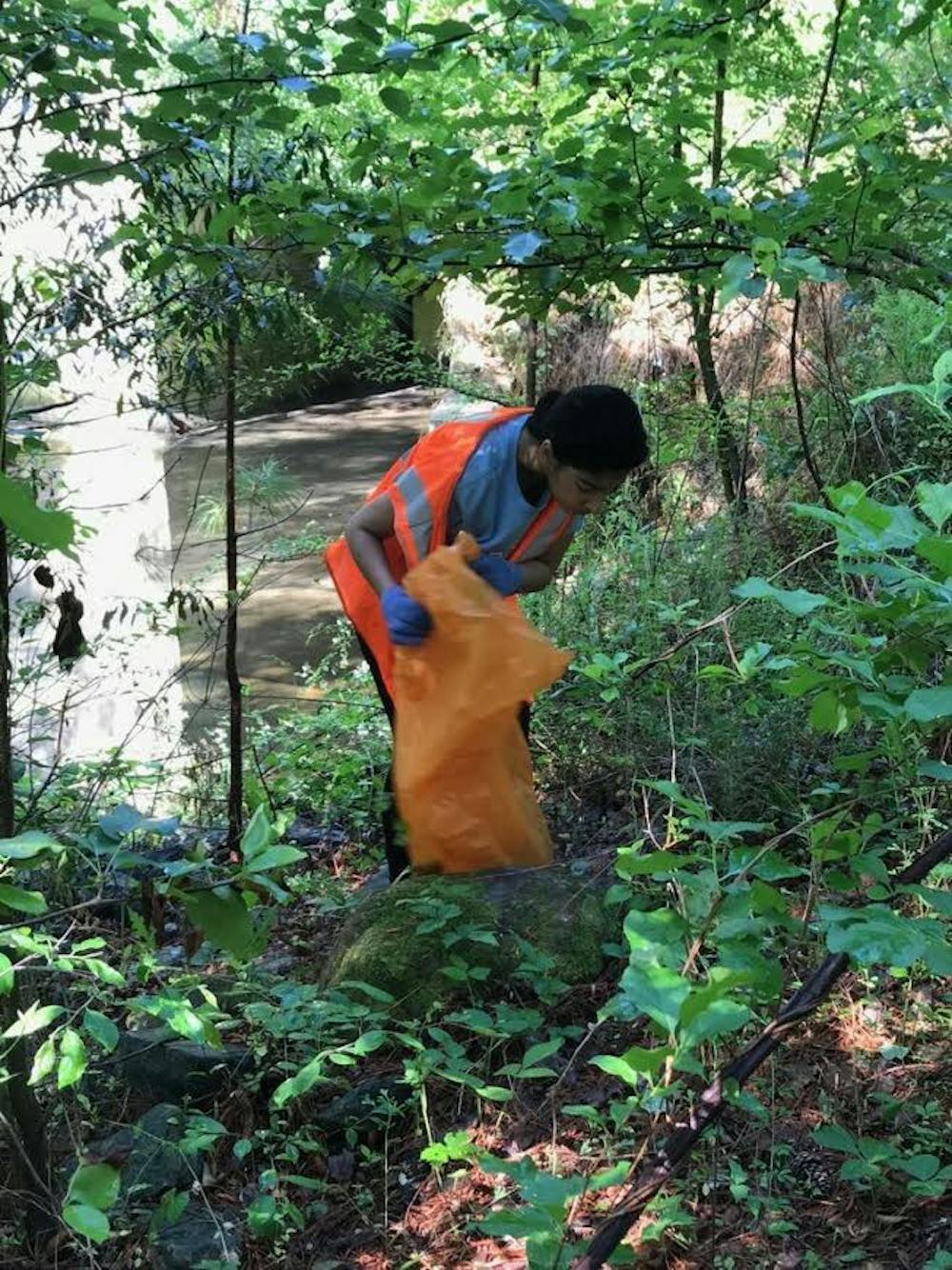Haley Moser is a junior environmental science major on the quantitative energy track who interns at the UNC Department of Environment, Health and Safety. Moser hosted a stream cleanup Saturday at a stormwater outfall on South Campus.
Senior writer Leah Moore spoke with Moser about what goes into a stream cleanup and why streams are important.
The Daily Tar Heel: What sorts of things do you do at a stream cleanup?
Haley Moser: The Department of Environment, Health and Safety hosts one each semester to fulfill a requirement. When we get there, we have a bag for trash and one for recycling. Basically, whoever said they would come, we all just walk down to one of the six campus stormwater outfalls and pick up whatever trash is there.
They’re usually in, not secluded areas, but areas that are kind of off the road. I think people go down there to hang out sometimes or whatever. There’s always trash and whenever trash comes through the storm water, it ends up piling up.
So we go down there and make sure all the bottles are cleaned up, there’s nothing blocking the outfalls, that everything is clean and safe for the environment.
DTH: What do you do at your internship?
HM: I host these stream cleanups every semester, so that’s the biggest thing. At least once a month, but I try to do it once a week if I’m not too busy. I’ll go around to each of the outfalls and inspect the water quality of them. I have worksheets that I use that ask things like if the water is cloudy, what pH it is ... While I’m there I’ll pick up trash.




